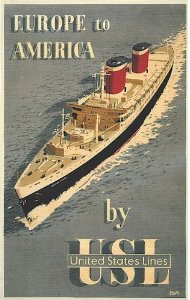Rationale

The primary and highly innovative aim of this project is to explore the effects of national location on the production of American history, through a collaborative investigation of the writing of American historians who are based in Europe.
Most non-American historians of the United States and its antecedents have often been confronted by questions relating to their position in the field:
- from their colleagues in their home countries: why American history?
- from their American colleagues: what perspective do you bring from abroad?
This project is thus based on the assumption that non-American historians of the United States are confronted by questions about history-writing that American historians of their own country do not generally encounter, simply because it has long been seen as “natural” to study one’s own nation. To a certain extent, it is a position shared by all historians working on countries other than their own. Nonetheless, the U.S. case shows some important specificities, not least the sheer size of the American academy. The professional group of U.S.-based historians of the U.S. can easily be self-contained to an extent that other countries’ academies can no longer afford to be (however parochial they might wish to be) – witness the loudly-trumpeted recent calls to internationalize American history.
The influence of national structures – be it outside or inside the United States – is absent from studies of American historical writing, even those studies that focus on historians’ identities, such as race and gender. This lacuna in the literature is all the more surprising considering the recent transformation of historical writing about the United States from an almost exclusively Anglo-American province into a worldwide activity. Meanwhile, the small literature on U.S. scholarship beyond America has sought to summarise the evolution of American studies around the world, rather than to analyse its distinctiveness from or commonalities with U.S.-based scholarship, and the ways in which national structures have acted as barriers or gateways to the U.S. academy. This project sits squarely between these two bodies of literature. Thus at its core, it is both a European and an American project, as two sides of the same coin.
Europe provides an ideal case study for an in-depth exploration of the impact of national location and structures on historical writing. There is a wide variety of relationships between European national academies and the U.S. academy, and there is a longstanding, developing, tradition (or rather, traditions) of U.S. historical writing in many parts of the continent. Europe provides both a diversity of academic situations and arrangements, and a frame where academic interrelations and exchanges are being intensified by the policies of the European Union. For most European scholars, there is also the question of language (or rather, languages), a question that goes beyond that of mere translation alone.
Moreover, the case-study of Europe is also sufficiently self-contained to afford systematic exploration of the question at hand. By showing what is common and what varies throughout the continent, it highlights what effects stem from national structures and what, on the contrary, can be explained through other factors (be it culture, circulations of ideas and scholars, and so on). The many commonalities with the U.S. university system also provide instructive comparisons and linkages, and reveal the extent of the American academy’s hegemony in the field.
In sum, the project will not serially survey what has been done in European countries in American history. Rather, it will study what effects the position of scholars outside of the U.S. has had, and continues to have, on the purpose and thus the practice of the writing of American history. And by addressing the issue of national, international, and academic structures, by analysing the position of European ‘Americanists’ in the field of American history, and by reflecting on the professional sociology of European historians of the U.S., the project will also seek to shed light, by implicit or explicit comparison, on the impact those same factors have on American historians of the U.S.
Please click here to find out more about the network’s research questions and activities.